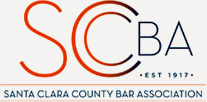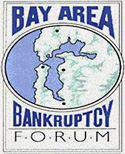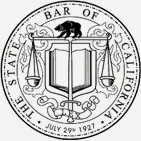
408-971-6270
Seven Years After the Homeowner’s Bill of Rights (HBOR) – A legal update:
 After the subprime meltdown, sweeping legislation was enacted in an effort to protect Californian homeowners. HBOR cases have since trickled in over the last seven years with a new one regarding fees for borrowers who successfully halt a foreclosure sale with a temporary restraining order.
After the subprime meltdown, sweeping legislation was enacted in an effort to protect Californian homeowners. HBOR cases have since trickled in over the last seven years with a new one regarding fees for borrowers who successfully halt a foreclosure sale with a temporary restraining order.
1. A Prevailing Borrower Is Entitled to Attorney’s Fees After Obtaining a Temporary Restraining Order.
After the Monterossa case in 2015 which held that HBOR provided for award of attorney fees and costs when a preliminary injunction issues, it was logical to then wonder if the same would apply after the borrower obtains a TRO. A TRO is an early court order, one that is obtained on a one day ex-parte notice. It is often difficult for a loan servicer or lender to mobilize in time to oppose a temporary restraining order.
In Hardie v. Nationstar Mortgage LLC, the fifth appellate district court answered this question, holding that “Under Civil Code Section 2924.12(h), a borrower who obtains a temporary restraining order is a “prevailing borrower” for the purpose of attorneys fees. In the underlying case, the borrowers filed an ex parte application for a TRO to enjoin a trustee’s sale of a property. The lender New Residential, the servicer Nationstar, and the trustee Aztec, filed no opposition and did not appear at the ex parte application hearing. The Court granted the TRO and later awarded the attorney’s fees. This appeal followed. Indeed, the appellate court’s position recited the statutory history, the holding in Monterossa and noted that the only reason the borrowers should be denied fees is because their counsel did not file a regularly noticed motion.
For lenders, this case is concerning because in traditional civil litigation, a prevailing party doesn’t typically receive fee awards piecemeal without an entry of a judgment on the merits. Here, the Hardie court seems to feel that a duly noticed motion will give the Court discretion to evaluate on the merits whether fees should be awarded and that the Court can look at likelihood of success as a factor in whether to award the fees.
Takeawayè Loan servicers should mobilize early to oppose the TRO. At a minimum, the loan servicer can seek that the TRO account for the plaintiff to pay a fee in line with fair market value rent for the duration of the injunctive relief.
[Hardie, et al. v. Nationstar Mortgage, LLC (Feb. 27, 2019) Fifth Appellate District]
2. HBOR Does Not Confer Upon Lenders an Independent Actionable Duty to Review Loan Modification Applications in “Good Faith”
In the unpublished case of Arefi v. JP Morgan Chase Bank, N.A., borrowers alleged HBOR violations against their senior lender JP Morgan Chase and the junior lender of the home equity line of credit, Miracle Day LLC. Namely the borrowers alleged that JP Morgan Chase had not evaluated their loan modification application “in good faith.” The Arefi court noted:
While the Legislature's purpose in enacting HBOR was to ensure borrowers have "a meaningful opportunity" for loss mitigation review (§ 2923.4, subd. (a)), the Legislature chose to achieve that purpose by proscribing certain lender practices, such as dual tracking (see former § 2923.6), and mandating others, such as requiring lenders to establish a "single point of contact" for the borrower (see § 2923.7) and to give borrowers certain written notices (former §§ 2924.9; 2924.10). Absent from the statutory scheme the Legislature created is an independently-actionable "duty" to review loan modification applications "in good faith."
The court provided a lengthy run down of how HBOR’s statutory mechanics. The borrowers had sued not only their senior lender, but also named their HELOC lender. However, they never applied for a loan mod with the 2nd. More importantly, certain HBOR provisions do not apply to the second: “Former section 2924.15, subdivision (a), stated that section 2923.6, among other sections of HBOR, "shall apply only to first lien mortgages or deeds of trust . . . ." And section 2920.5, subdivision (d), defines "first lien" as "the most senior mortgage or deed of trust on the property that is the subject of the notice of default or notice of sale." Thus, under the ordinary meaning of the language the Legislature enacted, HBOR does not apply beyond first, or senior, deeds of trust.”
Another consideration for the Court was no doubt that after many years of litigation, and a chapter 11 bankruptcy that the borrowers had filed, the lenders had been delayed and hindered by the borrower for many years from actually foreclosing.
[Arefi v. JP Morgan Chase Bank, N.A (July 2, 2018) 2nd Appellate District.]
Related Posts
By accepting you will be accessing a service provided by a third-party external to https://www.diemerwei.com/






